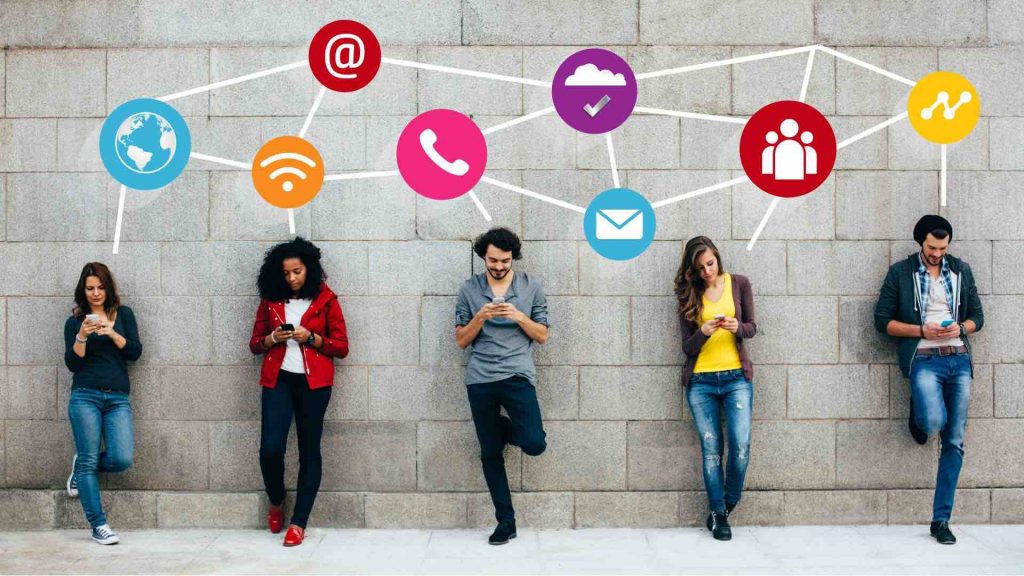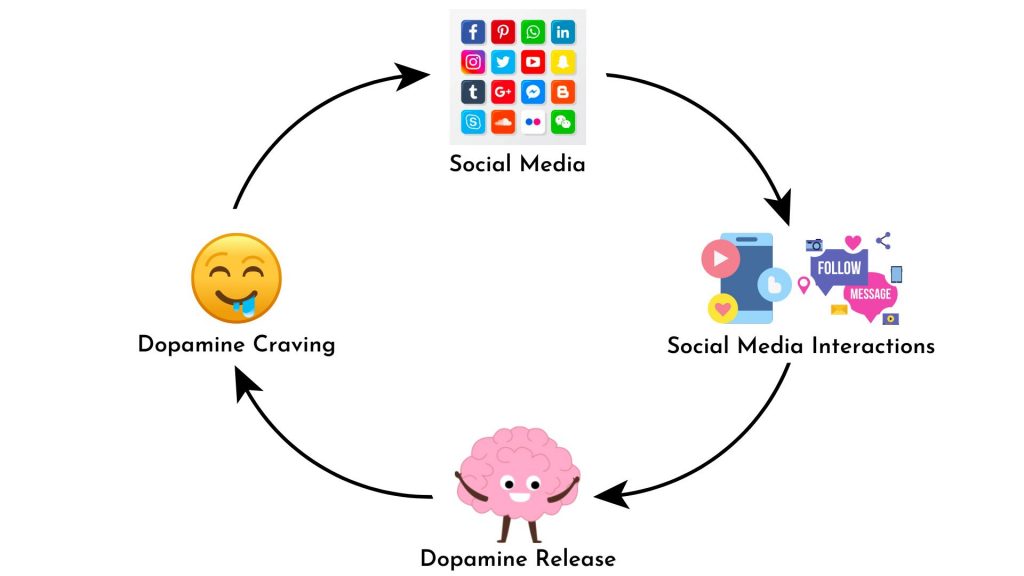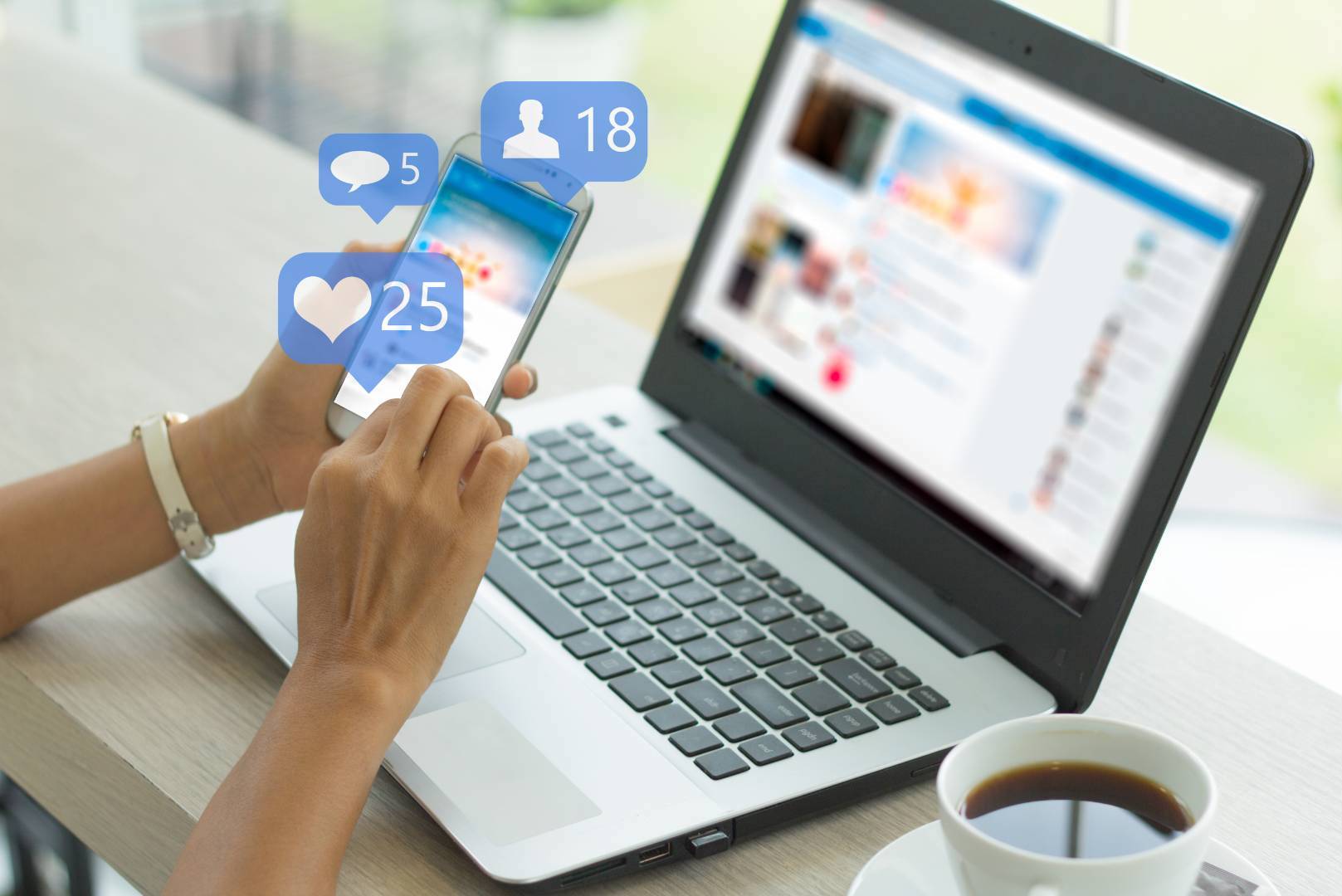The technological advances over the past two decades have been immense and impressive. There are a lot of advantages to such progress, but our minds haven’t had the time to adjust yet.
Look around anywhere you go, you’ll see people glued to their phones. Staring at images, videos, and posts. I do it. And since you’re here reading, I guess you do too.
There is nothing wrong with using social media, but it can become a major problem. Especially when you end up scrolling for hours per day. This can disrupt your sleep and morning routine. Or interfere with your motivation, goals, and ambition.
And this is common. According to TrueList, around 40% of young adults claim they are “somewhat” addicted to social media. That’s a huge statistic. How about you? Are you also addicted?
If so, ask yourself, instead of mindlessly scrolling, is there a mindful way to be? Can you take positive action to prevent that little device from taking over your life?
You can. And I’m here to help you.
Read on to find out how you can stop endless social media scrolling.
Why Do You Get Addicted to Social Media?

This is an important question to ask. You may not be surprised to hear that creators design social media to be addictive. The more you use it, the more it learns what you like. It will keep showing you your preferred content.
Facebook, Instagram, Twitter, Snapchat, and Tik Tok all use algorithms keep you hooked. This benefits them, as you spend more time using their platforms. They are intelligent by design.
On top of that, social media feeds are infinitive. They go on and on and on. You can scroll as much as you like, which is alarming. But what is going on in your brain when you do this? Why is it so difficult to break this habit?
The answer is dopamine.
The Social Media Dopamine Cycle

Dopamine is released when you anticipate or experience something pleasurable. That includes things like eating, having sex, exercising, and during successful social interactions. Much like those that occur on social media.
Every like and reply you receive, video, or photo you click on can release dopamine in your brain. And once you get a taste of dopamine, you want it again. So, you end up stuck in the social media dopamine cycle.
Social media is an endless supply of stimulation and entertainment. No wonder it’s hard to stop scrolling. It indulges your mind.
You also get a glimpse at other’s lives. It’s not uncommon of people to obsess with what they have, wanting that for themselves. Which in turn can create depression and anxiety.
It’s difficult to prevent our brains from wanting this dopamine fix. They’re hardwired this way and there is no stop button. But once you’re aware of the cycle, you can take back control.
Let’s look at how.
Bring Awareness into Your Social Media Usage
By being aware of how often you’re scrolling enables you to cut your social media usage in its tracks.
Using mindfulness practice and meditation is a great way to cultivate this skill. You can learn about the practice in my in-depth article.
Try this. The next time you’re scrolling on your phone, make yourself aware by saying, “I’m scrolling“. Also, focus on the physical movement of your finger as you tap and move it along the surface of the phone.
You can follow this up by asking “do I want to scroll right now, or is there something better I can be doing with my time?”.
Doing this simple exercise brings awareness to using your phone and scrolling. Rather than it being an unconscious habit. Now, you will be much more likely to put it down.
Pay Attention to Your Screen Time
I mean really pay attention to it, rather than just glimpsing at it and saying “ah well”. How many hours do you spend on your device? 2? 4? 6? 8? More!?
It’s crazy how much time people can spend mindlessly scrolling and going back and forth between apps. Again, ask yourself what you could be doing that’s more worthy of your time.
It’s also useful to remove the temptation of using your phone to begin with. Which leads me to my next point.
Don’t Sleep Next to Your Phone
What’s the first thing you do in the morning? What do you do if you wake up in the middle of the night? How about before going to bed? What about whilst in bed?
If you answered “go on my phone” to all or some of those questions, it’s fair to say you have developed an unhealthy habit. I know this all too well. Like many others, I also fell into that trap.
It’s even harder if your work revolves around being online, but maybe I’m making excuses now…
What I do is to put my phone in another room during sleeping hours. If you usually use your phone to wake you up, buy a cheap alarm clock.
No biggie really.
What if people need to phone you at 4am? Well, I hope that isn’t a major concern for you. But if so, place it close to your bedroom door on loud mode, so you’ll still hear it if someone calls.
Keeping your phone out of your bedroom will reduce your inclination to use it at unhelpful times. It may also improve your sleep. As the white light and stimulation are terrible for getting your mind into rest mode.
Let’s go a step further.
Limit Your Phone Usage
There are two helpful ways to limit your phone usage.
1) Turn off your phone during certain hours of the day.
For example, you could switch if off at a specific time at night to help you wind down. Then don’t turn it back on again until after having breakfast. Or you could have a cooling off period during the middle of the day for a few hours.
Give it a try and see if it works for you.
2) Set an alarm or countdown timer.
Some apps like Instagram even have time management features. Such as being able to set a daily time limit, or reminders to take breaks.
Very helpful.
Turn off Your Notifications
It’s handy to be notified about a reply or comment on your posts. But notifications are like somebody poking you for attention.
And what do you do when someone pokes or taps you on the shoulder? You look. It’s hard not to. Try turning them off. Even if it’s for a few hours to have a break. Then you won’t feel so inclined to immediately pick up your phone.
Have a Social Media Clear Out
How many groups have you joined, pages and people you follow that are no longer relevant in your life? Is it still necessary to stay up to date with that band you liked from high school?
Do you still need to know about that person you added at a random party 5 years ago? Are you still interested in that group you joined for a hobby you no longer pursue?
Consider having a social media clear out. Focus on the relationships, hobbies, and interests that are still relevant to you now.
It can bring more meaning into your social media usage.
Delete Apps
Easier said than done. But how about only accessing social media on occasion, instead of staring at your phone all the time? You could even delete apps during the week and then reinstall them at the weekend.
That’s an effective way to create balance and moderation. Be more productive midweek and indulge in social media on your days off.
Get Your Dopamine Fix Elsewhere
Instead of getting it from social media, what could you do instead? Try learning a new skill, going to the gym, or walking out in nature. You could work on creating something new. Achieving your goals. Or how about having real life social interactions?
There are so many more productive ways to spend your time.
What are you gaining or learning from social media? Perhaps you do watch content that’s useful and informative. But how often is that happening, verses the amount of time you’re staring at your phone like a zombie?
Don’t Let Mindless Scrolling Take Over
Remember our brains are hardwired to reward social interactions with dopamine. So, be gentle and kind with yourself for developing this habit. It’s a common one to fall into.
You don’t have to stop social media usage completely -unless you want to of course- but you can reduce it. Learn to use it in moderation. Self-awareness is the first step, then it takes a bit of determination and self-control.
Try out some of the suggestions above and see if they work for you.
Was this article helpful? Why do you find it difficult to stop scrolling on social media? I’d love to know in the comments below.
Take care of yourselves,
Chris from Mindful Way to Be
